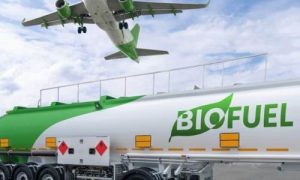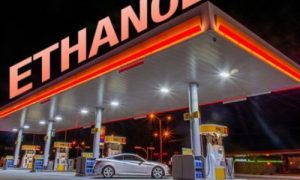USGC: Larson discusses ethanol policy advancements in Europe

The U.S. Grains Council’s October delegation to Italy and Spain aimed to support biofuel adoption for carbon reduction. Meetings in Italy focused on aligning biofuel policies with EU standards, with emphasis on increasing Italy’s ethanol blend, currently at E0.5, toward E5 by 2030. In Spain, discussions with government and industry leaders centered on increasing ethanol usage, aligning with Spain’s E10 target. Both nations seek to enhance ethanol’s role in sustainable transport, positioning U.S. ethanol as a competitive option amid these policy shifts.
October 30, 2024
BY U.S. Grains Council
In October, the U.S. Grains Council sent a delegation to Italy and Spain to meet with private sector leaders and influential policymakers to learn how to assist the countries in their ongoing efforts to reduce carbon emissions in the transportation sector.
The group was led by USGC Regional Ethanol Manager for the European Union (EU), United Kingdom (U.K.) and Canada Stephanie Larson and included USGC Regional Ethanol Consultant Alberto Carmona Bosch; Murex Vice President of Business Development Jeremy Mall; Marquis Energy Senior Trader Priscilla Domingues; and Nathan Weathers of the Colorado Corn Council.
“The Italian government has committed to a bio-blending mandate that will reach five percent (E5) by 2030 but progress toward that goal has been slow as Italy continues to blend at an E0.5 rate. In comparison, E10 is already available in 19 other EU states, leaving Italy behind several peer nations like France, the U.K. and others,” Larson said.
“Our meetings in Italy largely focused on the economic, environmental and health benefits of biofuels to stakeholders with a view toward developing Italian ethanol policy to be in-line with other EU markets.”
The group began its time in Italy by meeting with representatives from Iveco, a major Italian transportation manufacturer, and the Italian National Association of Motor Carriers to discuss their view of the Italian market and governmental and public appetite for ethanol, especially given that Italy produces relatively little ethanol.
In addition, the delegation engaged with these groups to discuss Italy’s recent call for policy changes regarding the EU’s internal combustion engine (ICE) ban, set to come into effect in 2035, which remains a major focal policy point for the Council within the broader EU context.
The delegation also met with NextChem, a company developing green energy solutions, and the Italian National Association of Energy Logistics Companies to learn about the country’s energy infrastructure and its goals and needs for the global energy transition.
The Italian leg of the program wrapped up with meetings with Confagricoltura, a major farming cooperative, and the Italian Ministry of the Environment and Energy Security. The Ministry confirmed Italy’s bio-blending mandate and its expected compliance in 2025.
In Madrid, the team met with staff from the Spanish Ministries of Agriculture, Fisheries and Food and Ecological Transition and discussed the government’s policy plans to address rising demand for gasoline from consumers and the associated increase in carbon emissions.
The agenda was capped by meetings with leaders from vital industry associations including the Institute for Energy Diversification and Savings, the Spanish Association of Petroleum Products Operators and the Spanish Ethanol Association to align on priorities for encouraging greater ethanol usage and uptake in Spain as the country continues to implement its E10 blending mandate.
“Spain currently offers an E5 blend to consumers and the ethanol market remains highly concentrated,” Larson said. “Despite this, U.S. ethanol is competitively priced, meaning producers are well-positioned for any increases in blending rates and consumption.”
Source Link : https://ethanolproducer.com/articles/usgc-larson-discusses-ethanol-policy-advancements-in-europe















